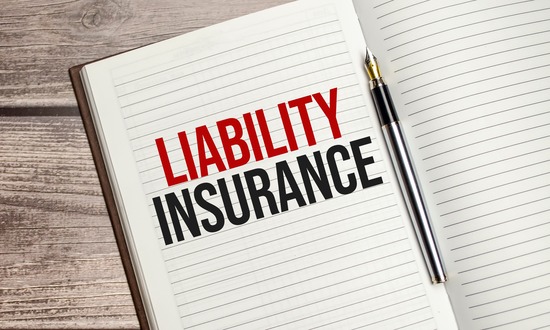General liability insurance is one of the most important policies a business can have. It protects you from financial disaster when accidents happen—like a customer slipping in your store or a delivery driver damaging a client’s property. But many business owners don’t realize what this insurance doesn’t cover until it’s too late.
So, let’s break it down. Here’s what isn’t covered by general liability insurance, when you should (or shouldn’t) file a claim, and what additional coverage you might need to protect your business properly.
1. Your Work Isn’t Covered—Insurance Is Not a Warranty
This one catches a lot of business owners off guard. General liability insurance doesn’t cover your actual work or the cost of redoing a bad job. If a customer claims your work was done poorly or needs to be fixed, you’re on your own.
Example: Contractors & Construction Work
Imagine you’re a general contractor, and you build a deck for a client. A month later, the deck collapses. General liability will pay if the client was injured or their property was damaged in the collapse, but it won’t pay to rebuild the deck. That’s considered a faulty workmanship issue, not a liability issue.
If you want coverage for this, you’ll need a contractor’s errors & omissions policy or a special endorsement known as “your work” coverage, which some insurance carriers offer.
Example: Retail & Product-Based Businesses
If you sell products, general liability covers injuries caused by defective merchandise (product liability insurance). But if your business installs or repairs products, your actual workmanship isn’t covered. If you run an appliance repair business and you incorrectly fix an oven, leading to it breaking down again, your general liability policy won’t cover the cost to fix your mistake.
2. When to File a Claim (And When Not To)
Filing an insurance claim isn’t always the best move. While your policy is there to protect you, filing too many claims can increase your premiums or even lead to non-renewal.
When You Should File a Claim:
- Major financial risk: If an accident could cost your business tens of thousands (or more), file a claim.
- Serious injury: If a customer or third party is injured on your property, file immediately.
- Third-party property damage: If your business accidentally damages someone else’s property, insurance can cover it.
When You Shouldn’t File a Claim:
- Minor incidents: If the damage or injury costs less than your deductible, paying out of pocket can prevent rate hikes.
- Your own property damage: General liability doesn’t cover damage to your business’s own equipment or office space—that’s covered under commercial property insurance.
Example: Service Businesses
If you own a cleaning company and one of your employees knocks over a $500 lamp while working in a client’s home, you could file a claim. But if your deductible is $1,000, you won’t get reimbursed anyway. Paying for small incidents out of pocket can save you money in the long run.
3. What About Errors & Omissions (E&O) Insurance?
Unlike general liability, which covers bodily injuries and property damage, errors & omissions (E&O) insurance protects you from financial losses caused by mistakes or negligence in your professional services.
What E&O Covers:
- Negligence claims: If you make a mistake in your work that costs a client money, E&O covers the damages.
- Missed deadlines: If a project delay on your end causes financial harm to a client, they could sue you.
- Misrepresentation claims: If a client claims you gave bad advice that led to a loss, E&O can help cover legal fees.
Example: Consultants & Advisors
A marketing consultant advises a client to invest in a digital ad campaign that fails miserably, costing the client $50,000 in lost revenue. The client sues, claiming bad advice. General liability won’t cover this claim, but E&O insurance will.
Example: Contractors & Tradesmen
An electrician installs wiring incorrectly in a commercial building, leading to a $100,000 repair. E&O insurance would cover the cost of fixing the mistake, whereas general liability would not.
Who Needs E&O Insurance?
While general liability is essential for all businesses, E&O insurance is especially important for:
- Contractors & construction professionals
- Consultants & business advisors
- Real estate agents
- IT professionals
- Accountants & tax preparers
- Marketing professionals & designers
4. Additional Coverages to Consider
Since general liability isn’t an all-in-one policy, most businesses need additional coverage. Here are a few to consider:
Business Property Insurance
Protects your physical assets, like buildings, equipment, and inventory. If your office burns down or your tools are stolen, this insurance pays to replace them. General liability won’t.
Workers’ Compensation
Covers employee injuries. If one of your workers gets hurt on the job, workers’ comp covers medical bills and lost wages. General liability does not cover employee injuries.
Cyber Liability Insurance
If you store customer data, process payments online, or run an e-commerce store, cyber insurance protects you from data breaches, hacking, and cyber fraud. General liability doesn’t cover cyber risks.
Protect Your Business the Right Way
General liability insurance is a must, but it’s not a one-size-fits-all solution. To make sure your business is fully protected, you might need additional coverages like E&O, workers’ comp, or cyber liability insurance.
At USA Business Insurance, we help small business owners find affordable, customized coverage tailored to their industry.
Just ask Mark T., a contractor from Texas:
“USA Business Insurance made it super easy to get the exact policy I needed. They explained everything in plain English, no hidden fees!”
Or Sarah L., a retail shop owner:
“Fast service, great rates, and they actually care about small businesses!”












